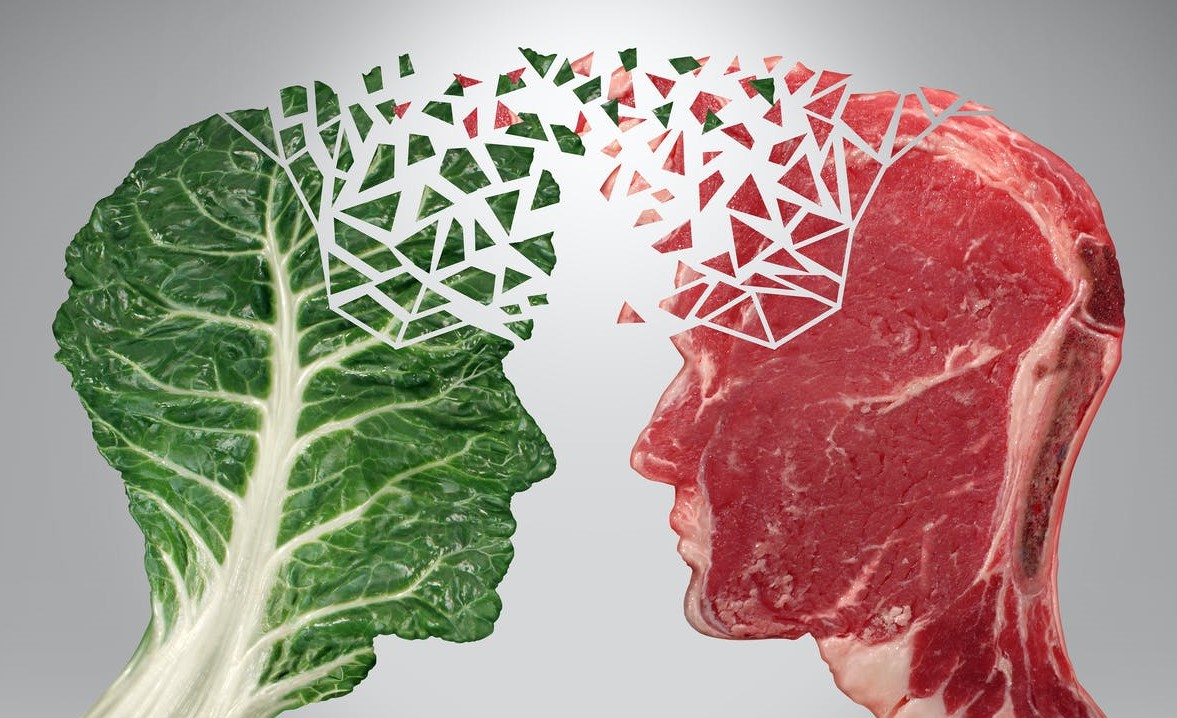Unless you’ve switched off from all social media and the internet – which I wouldn’t blame you for in the current climate – you’ll have heard of Veganuary. It is a movement that originated in 2014 to encourage people to try veganism for the month of January, and in its first year 3000 people pledged to give up meat and dairy for 31 days. Since then, popularity has snowballed year on year, with over 500,000 people signing up for Veganuary 2021; quite a staggering increase. According to the Vegan Society, the number of self-declared vegans has increased from 150,000 (0.25% of the population) in 2014 to 600,000 (1.16% of the population).
The increase in popularity of veganism has caused meat and dairy farmers to feel targeted. Now I’m not talking about factory farming, where animals are kept in horrific conditions and mass produced as a commodity. Instead, I’m talking about local, smaller scale farms, where animals are arguably treated well throughout their lives, even if the end result is them being killed for meat. Some would argue this is acceptable and this article is not here to pass judgement on that; but will instead fact check some common misconceptions about buying local vs. buying vegan.

A post by Ethical Butcher has made a few waves this past week. This post stated that Veganuary should be replaced by Regenuary, where the most important criteria is where produce comes from. In this post, multiple bold and baseless claims were made. Let’s start with “swapping out beef and pork for nuts and avocado is worse for the environment than simply choosing not to eat well raised animals”. This claims that importing avocados and almonds, apparently “vegan staples”, from South America and California is worse than locally sourced meat. A 2017 study conducted an extensive literature review and found that, per kg, UK beef and UK pork produce 20 and 5 times the emissions of avocados, respectively. It’s also worth mentioning that avocados and nuts aren’t solely reserved for vegans.

One key point the Ethical Butcher makes is that Regenuary can be for both vegans and omnivores. What they fail to recognise is that an omnivore can take part in Veganuary for one month and then return to eating meat and dairy products. It could be argued that Veganuary is more accessible than Regenuary, as veganism comes at a much lower cost – meat and cheese substitutes aside. Buying local meat and cheese produce, however, tends to be more expensive, with butchers and delis generally having higher prices than supermarkets.
On to the next claim: “if all foods eaten for a month, … are not imported, and the animals are farmed using regenerative agriculture, now that could save the world.” As lovely as this sounds, it is just not the case. An analysis of the highly renowned Global Emission Model for Integrated Systems (GEMIS) database concluded that organic meat is not better for the environment. Even the lowest impact meat; organic pork, was responsible for more than 8 times the climate cost than the highest impact plants. This further shows that organic and local doesn’t necessarily equate to the most environmentally friendly option.

Another claim the post makes is that “soya has received fierce criticism for its role in the deforestation of South America”. This is not untrue; a lot of deforestation occurs so that soya can be grown. However, if you look at what the soy is used for then the Ethical Butcher’s point is somewhat moot. Globally, only 6% of soya is grown directly for humans, whereas 75-80% (up to 96% in the Amazon) is for farmed animals. The excessive deforestation to grow soya plants is caused by the demand for meat and really can’t be blamed on vegans.
From a sustainability point of view, there is no competition: Veganuary wins against Regenuary every time. There is a big flaw in Regenuary: you can shop local and vegan, which ultimately is the most sustainable option. However, the demonisation of meat and dairy farmers is very toxic. Yes, we should move towards reducing our meat and dairy intake, whether for our own health, the environment, or the welfare of animals. However meat and dairy farmers, who make up a large proportion of rural communities, should also be given support to make this transition as they are currently left by the wayside. This breeds movements like #regenuary, which spreads misinformation about the true environmental impacts of meat and dairy, and further increases the divide between meat eaters and vegans.
By Katherine Graves
Header image: The Conversation

